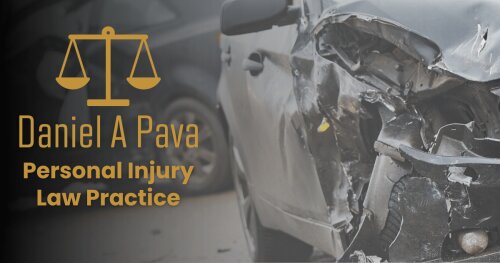Best Brain Injury Lawyers in Springfield
Share your needs with us, get contacted by law firms.
Free. Takes 2 min.
List of the best lawyers in Springfield, United States
1. About Brain Injury Law in Springfield, United States
Brain injury law in Springfield covers a range of legal areas including personal injury, disability rights, medical malpractice, and workers’ compensation. Because Springfield sits in Illinois, many rules come from state law, while federal protections apply in education, employment, and public access. This guide explains how these facets intersect for residents seeking legal help after a brain injury.
In practice, a brain injury case in Springfield may involve several legal pathways: pursuing compensation from at-fault parties in a personal injury action, navigating insurance claims, and asserting rights under disability laws for education or employment. Understanding the interplay between state tort rules and federal protections helps you choose the right attorney and strategy. Key points include the importance of timely medical documentation, careful negotiation with insurers, and awareness of your rights under federal disability laws that may apply in education and work settings.
For context, traumatic brain injury affects millions nationwide each year and has lasting medical and financial implications. The Centers for Disease Control and Prevention (CDC) and the National Institute of Neurological Disorders and Stroke (NINDS) provide authoritative guidance on incidence, outcomes, and care pathways that inform how courts evaluate damages and future needs.
According to the CDC, millions sustain brain injuries annually and many require long-term support services.These national resources can help you understand your medical needs while your attorney develops a legal plan in Springfield. CDC traumatic brain injury overview • NINDS TBI information.
2. Why You May Need a Lawyer
Below are concrete, Springfield-relevant scenarios where people often seek legal counsel for brain injuries. Each example reflects real-world situations you might encounter in and around Sangamon County or nearby areas.
- A motor vehicle collision on I-55 near Springfield leaves you with a moderate to severe traumatic brain injury and ongoing cognitive impairments. You need an attorney to sort liability, insurance coverage, and long-term care costs that stretch for years.
- You suffer a fall in a Springfield business or shopping center and the property owner’s negligence is suspected. An attorney can help prove premises liability, recover medical bills, and seek compensation for lost wages if you cannot return to work.
- A hospital stay for treatment leads to unexpected brain injury complications. You may pursue medical malpractice claims if hospital staff or doctors failed to meet the standard of care, with attention to expert testimony and damages.
- Work-related brain injury requires navigating workers’ compensation and possible third-party claims. An attorney can coordinate benefits for medical care, wage replacement, and vocational rehabilitation.
- Insurance disputes arise when a carrier denies or limits coverage for long-term cognitive rehabilitation or assistive devices. Legal counsel helps verify policy terms and pursue appropriate benefits or settlement.
- You or a loved one has educational needs due to brain injury and requests for appropriate supports under IDEA or Section 504. An attorney can ensure access to ordered services and address disputes with schools in Springfield.
3. Local Laws Overview
Brain injury matters in Springfield are primarily influenced by federal protections and Illinois state tort and disability considerations. The following laws commonly intersect with brain injury issues in education, employment, and public accommodations. Note that local practice may differ by county or city procedures, and consultation with a Springfield attorney is advised for precise applications.
Americans with Disabilities Act (ADA)
The ADA prohibits discrimination based on disability in employment, public services, and public accommodations. In Springfield, this can affect workplace expectations, access to medical facilities, and participation in public programs. The ADA was enacted in 1990 and amended by the ADA Amendments Act of 2008 to broaden protections.
Practical impact: If you face barriers at work or in a public space after a brain injury, an attorney can help you pursue reasonable accommodations or remedies under the ADA. For official guidance, see the U.S. Department of Justice ADA information pages.
ADA information - ada.gov • ADA enforcement by DOJ
Individuals with Disabilities Education Act (IDEA) and Section 504 of the Rehabilitation Act
IDEA governs educational supports for students with disabilities, including those with brain injuries. Schools must provide an appropriate Individualized Education Program (IEP) or 504 Plan to ensure access to free appropriate public education. IDEA was first enacted in 1975 and reauthorized several times, including amendments in 2004. Section 504 protects individuals with disabilities from discrimination in programs receiving federal funding, including public schools.
When a Springfield student with a brain injury needs services, an attorney can help request evaluations, services, or disputes with school districts. Official IDEA resources and 504 guidance are available through federal and state education websites.
IDEA information - sites.ed.gov/idea • Section 504 information - ed.gov/ocr
State-level considerations and statutes of limitations
While federal protections are central, Illinois law governs many personal injury and medical-related disputes arising from brain injuries. Statutes of limitations for injury claims and the availability of certain damages are determined by state law. An Illinois attorney can explain how these rules apply to your case, including any differences based on the county or city in which your incident occurred.
Because rules vary by jurisdiction and can change, always confirm current thresholds and deadlines with a Springfield-based attorney.
“Federal disability protections, including the ADA and IDEA, shape how brain injury claims interact with schools and workplaces in Springfield.”
Sources: ADA information and enforcement pages provide authoritative guidance on federal protections; IDEA resources outline educational rights for students with brain injuries. ADA information - ada.gov • IDEA information - sites.ed.gov/idea
4. Frequently Asked Questions
What is a brain injury?
A brain injury is damage to the brain from a blow, jolt, or penetrating event that can affect thinking, movement, or behavior. It ranges from mild concussions to severe injuries requiring long-term care.
What is the first step after a brain injury in Springfield?
Seek immediate medical care and document all diagnoses, treatments, and therapy needs. Then contact a local attorney experienced in brain injury cases to review potential claims and liens.
What is a personal injury claim for brain injury?
It is a lawsuit seeking compensation from those legally at fault for causing the injury, including medical expenses, lost wages, and pain and suffering.
How much can I recover for a brain injury?
Damages vary by case. They can include medical costs, future care, lost earnings, and non-economic damages. An attorney evaluates your long-term needs to set a realistic target.
Do I need to file a claim in Springfield or the state where the accident occurred?
You typically file where the incident happened, but your attorney will advise if a related claim in another jurisdiction is advantageous.
How long does a brain injury case take in Springfield?
Most cases settle within 6 to 24 months, but complex matters can take longer if lawsuits proceed to trial.
What is the role of a brain injury attorney?
The attorney investigates liability, negotiates with insurers, coordinates medical evidence, and, if needed, represents you in court to pursue compensation.
Do I qualify for disability benefits due to a brain injury?
Eligibility depends on the severity and impact on daily functioning, and benefits may be available under federal programs like Social Security Disability Insurance (SSDI) or Supplemental Security Income (SSI).
Is there a difference between an attorney and a solicitor in Springfield?
In the United States, the common term is attorney or lawyer. The term solicitor is typically used in other jurisdictions.
What if the at-fault driver has limited insurance?
You may pursue underinsured motorist coverage or other sources of recovery, such as your own policy or a third-party claim.
Can schools provide necessary support under IDEA for a student with a brain injury?
Yes, schools must evaluate and, if appropriate, provide services under IDEA or Section 504 to support educational access.
5. Additional Resources
Access to credible information and practical guidance is essential. The following organizations and government sources offer authoritative brain injury information and guidance for Springfield residents.
- Centers for Disease Control and Prevention (CDC) - Traumatic Brain Injury: National data, prevention, and basic facts about TBI. cdc.gov/traumaticbraininjury
- National Institute of Neurological Disorders and Stroke (NINDS): Consumer-friendly information on brain injury symptoms, research, and care. ninds.nih.gov
- Brain Injury Association of America (BIA): National resources, support networks, and guidance for caregivers and patients. biausa.org
6. Next Steps
- Gather documentation collect medical records, imaging, diagnoses, rehabilitation plans, and any accident reports or police records within 7 days of contacting counsel.
- Identify Springfield brain injury attorneys search bar associations and referral services, focusing on experience with auto, premises, medical malpractice, or workers’ compensation cases. Expect initial contacts within 1-2 weeks.
- Schedule consultations arrange meetings with 2-4 attorneys to compare approach, fees, and expected timelines. Bring questions and documents to each meeting.
- Clarify fees and costs confirm whether the attorney works on a contingency basis and what expenses you may owe if there is no recovery.
- Develop a damages plan list all current and future medical costs, therapy, home modifications, and lost wages to discuss with your attorney.
- Evaluate settlement vs trial discuss with your attorney the likelihood of settlement and the potential timeline for going to court.
- Proceed with a formal action if needed, file the appropriate claim in the Springfield area and pursue discovery, expert testimony, and settlement negotiations. Expect 3-24 months depending on complexity.
Lawzana helps you find the best lawyers and law firms in Springfield through a curated and pre-screened list of qualified legal professionals. Our platform offers rankings and detailed profiles of attorneys and law firms, allowing you to compare based on practice areas, including Brain Injury, experience, and client feedback.
Each profile includes a description of the firm's areas of practice, client reviews, team members and partners, year of establishment, spoken languages, office locations, contact information, social media presence, and any published articles or resources. Most firms on our platform speak English and are experienced in both local and international legal matters.
Get a quote from top-rated law firms in Springfield, United States — quickly, securely, and without unnecessary hassle.
Disclaimer:
The information provided on this page is for general informational purposes only and does not constitute legal advice. While we strive to ensure the accuracy and relevance of the content, legal information may change over time, and interpretations of the law can vary. You should always consult with a qualified legal professional for advice specific to your situation.
We disclaim all liability for actions taken or not taken based on the content of this page. If you believe any information is incorrect or outdated, please contact us, and we will review and update it where appropriate.










